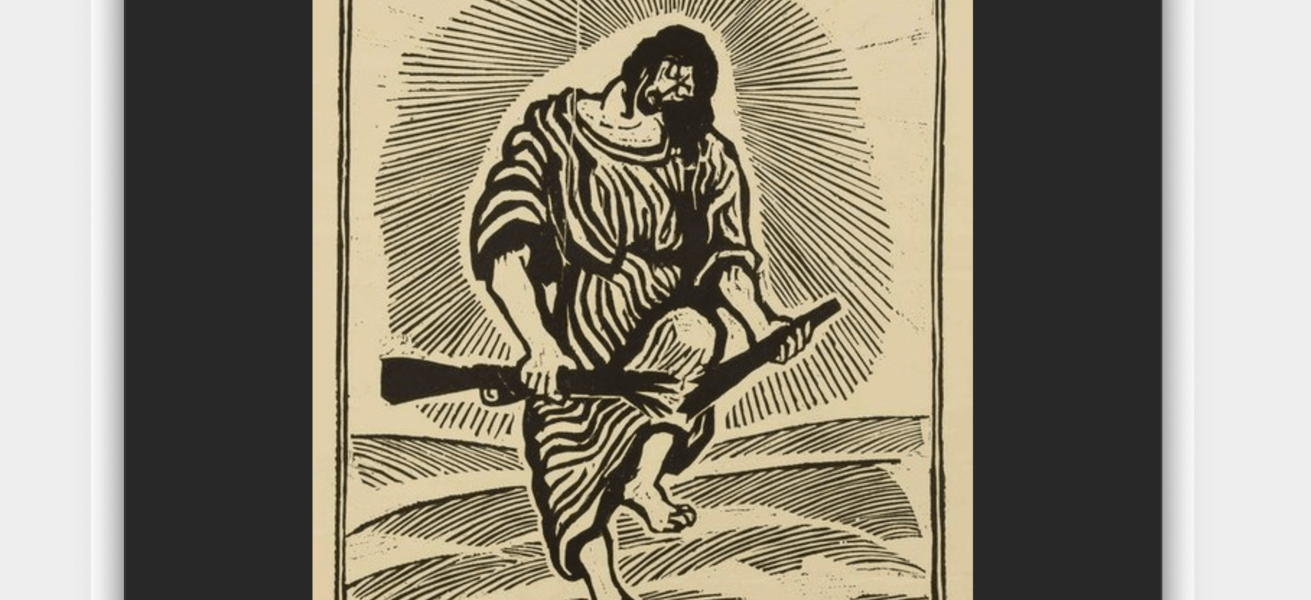And now for something completely different…
So I got Dr. Charles’ new book via OhioLink today…and my initial reaction to it, I am somewhat ashamed to say, is violent anger. J Disclaimer: there might be some ranting in the following! These are my thoughts/initial reactions as I just begin to read the book (I really haven’t got far yet. It may be illuminating to compare these thoughts to my reflections further along, when I can read more of his arguments. That’s really why I’m publishing these comments.)
Let it not be thought that only Christians who admit the use of violence are engaging in responsible moral and theological reflection or responsible conversation with secular policy-makers. I trust Dr. Charles does not really think this is the case, but one might be led to think otherwise by his consistent criticism of Christians who do not think through moral issues and who do not engage with current events relevant to public policy on a national or global scale, combined with his holding up of (nigh exclusively) JWT proponents such as himself, Reinhold Niebuhr, and Paul Ramsey as models of Christians who are thinking and engaging the world responsibly, ethically, and Christianly.At times his rhetoric seems emotionally colored and strongly biased against the perspective of Christian nonviolence. He considers the response of some Christians to the Sept. 11, 2001 attacks of “Let us remember to forgive our enemies” to be a “theologically vacuous excess” that “will contribute little to civil society”. (11)
I hope that Dr. Charles will eventually engage with his opponents on the pacifist side with some exegetical depth (admittedly I am only in the first chapter). I want to know his reasons for rejecting the arguments of Yoder and Hauerwas and the like, and not just his reasons for embracing JWT.I appreciate the fact that Dr. Charles grew up Mennonite, and that his father was a CO in World War II. It increases my level of respect for him that he is not just arguing for a view that he has always been comfortable with, and was raised into. But I worry a little–perhaps unfoundedly–that he tends to characterize the Anabaptist perspective too monolithically, as advocating withdrawal from society. Not all Anabaptists, and not all Christian pacifists would do so. I have to admit that Dr. Charles’ political perspective is quite different from my own. He rejects what he calls “the self-righteous attitude of ‘America as empire’…attributing to our nation imperial or imperialistic designs that are reputedly causing the ills of the whole world.” (16). He is certainly right that self-righteousness should be no part of this attitude for Americans, but I really do perceive the US government’s policies over the last several decades to be imperialistic–even openly and unashamedly so at times. Dr. Charles argues against those who claim that JWT and pacifism share a common presumption against violence. The presumption, he says, is against injustice. JWT recognizes that peace is not merely the absence of conflict, and that there is something wrong–to be corrected–when a society is not justly ordered. I think he is right that “absence of conflict” is not the highest good–but that does not mean that war is an effective or just method of bringing about a just ordering of a society. Not only does war often fail (as in the present case!) to bring about a just ordering of society effectively, but even if it were to achieve this ideal result, the means taken are most decidedly unjust. In my view, the consistent, respectable pacifist position calls for (and to some extent participates in) nonviolent responses to injustice, both domestically and internationally. “When we speak of just war, we do not mean a war that, narrowly speaking, is just. Rather, we refer to warfare undertaken that is in conformity with the demands of charity, justice and human dignity, and that seeks to protect the innocent third party from gross injustice and social evil. These are the fundamental assumptions of just-war thinking.” (20). I applaud these words. I question the possibility of a war (especially a modern war conducted by the U.S. military!) which can meet these standards, not only as an ideal that forms a part of our leader’s political rhetoric, but as a lived reality, day to day, for the people on the front lines. Just how are you supposed to drop bombs in a way that is charitable, respectful of human dignity, and protects the innocent third party? This sounds to my ears like suggesting that we give someone a lethal injection while at the same time being motivated by an overriding concern for the condemned’s well-being! Dr. Charles speaks dismissively of the attitude of churches in the Cold War years who argued that “War could not possibly be justified … regardless of the gulf between democratic self-government and totalitarianism. Both superpowers…are immoral in ‘threatening’ the world.” (18) He is not really making an argument here, and I don’t suppose he is trying to at this point in the book. But it should still be said that one’s ordering of domestic society being more just does not justify an unjust war against another society (or its oppressed civilians! MAD is all about threatening noncombatant life!!). This is like saying that because our religion is better than someone else’s that we have a right to invade their territory and forcibly convert them. (This is, in fact, in political terms, what the White House’s explicit policy seems to be!). This smacks of cultural imperialism, if not any other kind of imperialism.
"He Himself is our Peace." (Eph 2)





No comments:
Post a Comment